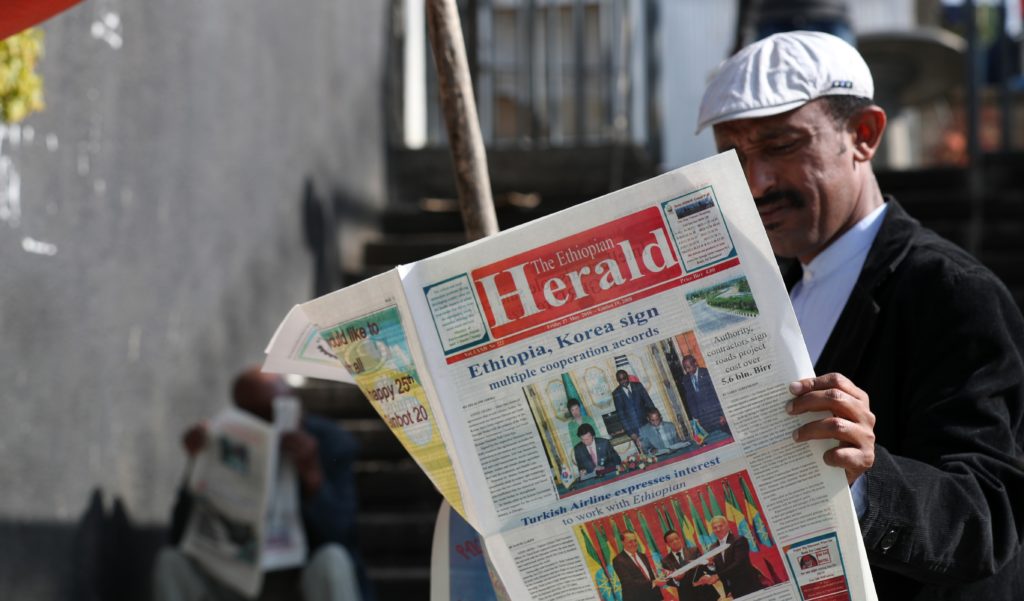The Peninsula
Prospects for Stronger Ties with Africa for the Next South Korean Administration
Published April 28, 2017
Category: South Korea

This is the fourth in a series of blogs looking at South Korea’s foreign relations in the run up to the next Korean administration taking office on May 10. The series also includes blogs on relations with the United States, China, North Korea, the European Union, Japan, Russia, the Middle East, ASEAN, and Latin America.
By Jennifer Cho
For the longest time, South Korea has not prioritized Africa within its foreign policy. The main exception was in the 60s, when the South competed with North Korea to earn more votes in the United Nations. Recently, however, interest in Africa has significantly increased because of its abundant natural resources and huge oil deposits. Although Korea embarked on closer diplomatic relations across Africa in recent years, Seoul has tended to focus on short-term projects that lack continuity.
In the past, each Korean president came up with similar approaches with different titles, but some projects were forgotten with changes in the administration. With a new administration in Seoul after the May 9 election, it remains to be seen whether this short-term approach will continue – so far, none of the presidential candidates have clearly stated any plans for Africa policy once they are in office.
Despite some governmental efforts toward economic cooperation, South Korea’s engagement with Africa started late compared to other countries. For example, China’s trade volume with the continent increased from $10 billion in 2000 to $300 billion in 2015. However, South Korea’s trade volume remains at about $19 billion. Along with trade volume, South Korea also lacks investment in Africa. To fill these gaps, the Korean government is looking to play a significant role in backing up domestic firms and companies.
One way Korea has done this is through President Roh Moo-hyun’s “Korea Initiative on Africa’s Development,” which began in 2006. Through this project, Korea hosted several Korea-Africa Fora to establish partnerships and strengthen economic and political cooperation in the future. The past three fora provided South Korea with opportunities to build economic relationships with more African countries, including a cooperation framework called the Korea Africa Economic Cooperation Framework (KOAFEC), which provides aid to Africa and chances to collaborate with the African Development Bank. The most recent forum was held last December in Addis Ababa, Ethiopia, where the African Union (AU) headquarters are located. More than 150 people, including cabinet ministers and representatives from 14 African countries, participated in the fourth forum and discussed challenges for establishing peace and stability and also how to tackle joint economic development projects.
Besides economic opportunities, these fora provided a space to discuss security policy in regards to North Korea. During the fourth forum last December, South Korean Minister of Foreign Affairs highlighted the importance of security issues on the Korean peninsula. South Korea asked for cooperation from various African countries in regards to North Korea and requested support for U.N. Security Council Resolution 2331 that strengthened sanctions measures against the DPRK. Last month, the South Korean defense vice-minister visited Egypt to sign an MOU on defense cooperation for security issues related to the DPRK. Because Egypt is located between Africa and the Middle East, a stronger relationship with Egypt will expand South Korea’s influence on both continents.
Continuous dialogues on targeting mid- to long-term projects will play a significant role in Korea-Africa relations in the future. Africa has ample natural resources and extensive potential for economic and energy development. In addition, the continent’s increasing population has greatly increased demand for infrastructure and has creased possibilities for the development of manufacturing, which can reach a huge group of consumers. South Korea’s effort to strengthen ties with various African countries, including Egypt, Kenya, and Angola, will not only strengthen previous diplomatic ties but also promote businesses development across the continent. It will be important for the new administration that takes power in May to review previous policies and continue recent dialogues to create lasting, long-term partnerships.
Jennifer Cho is a graduate of Kalamazoo College and an intern at the Korea Economic Institute of America (KEI). The views expressed here are the authors’ alone.
Photo from Korea.net’s photostream on flickr Creative Commons.
